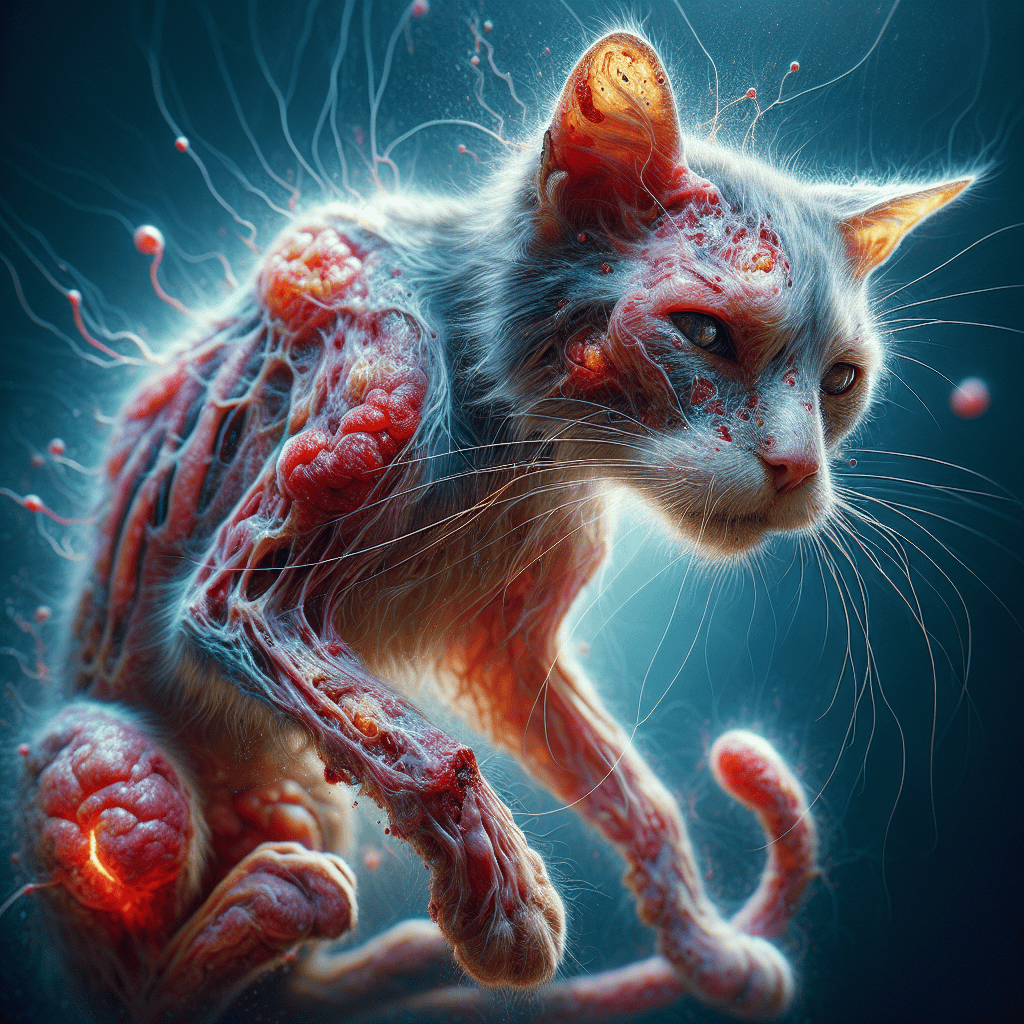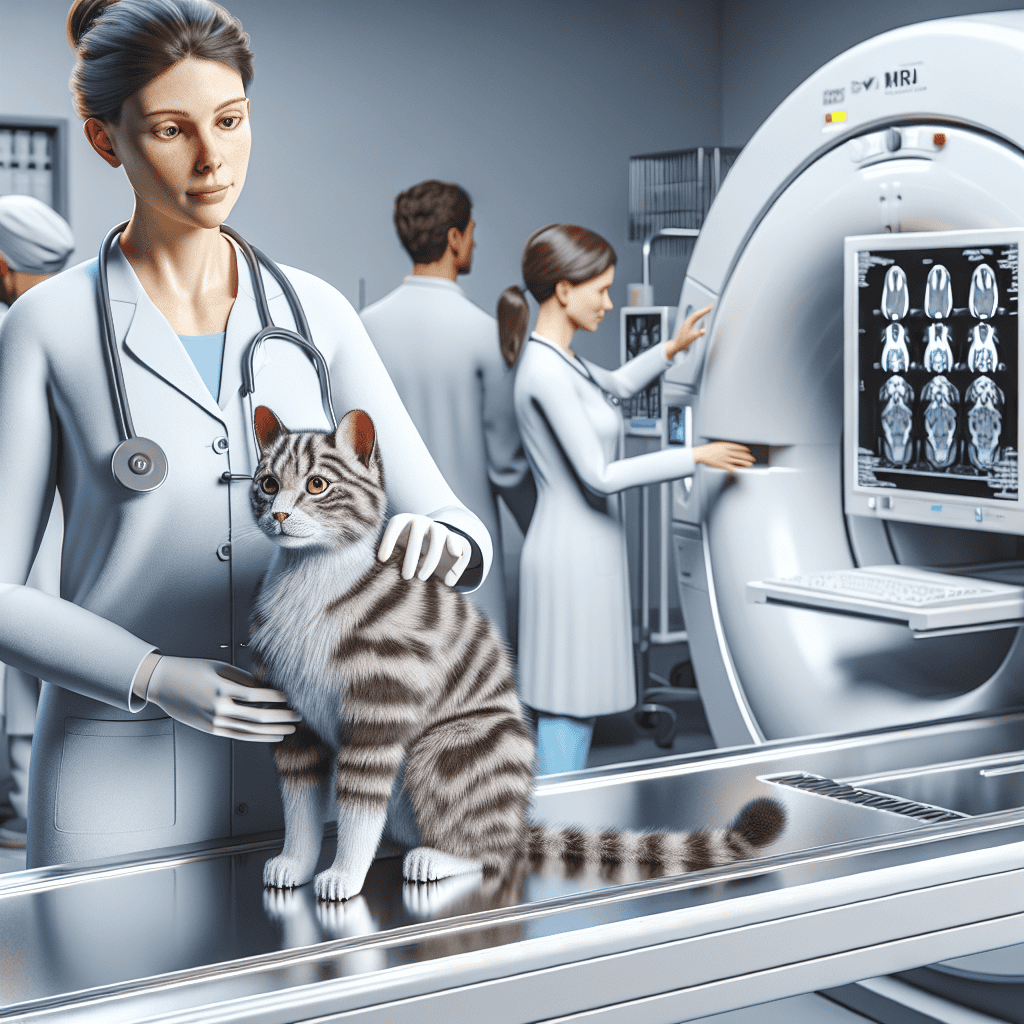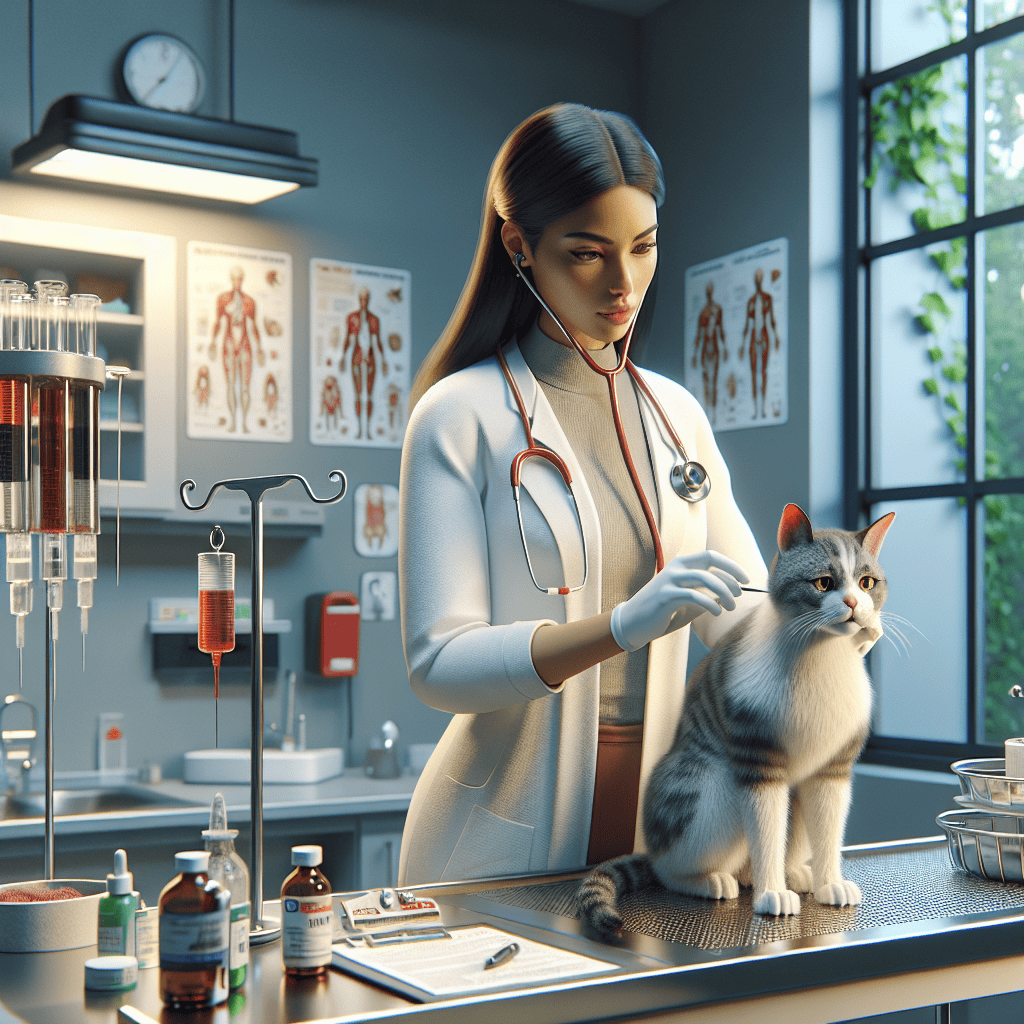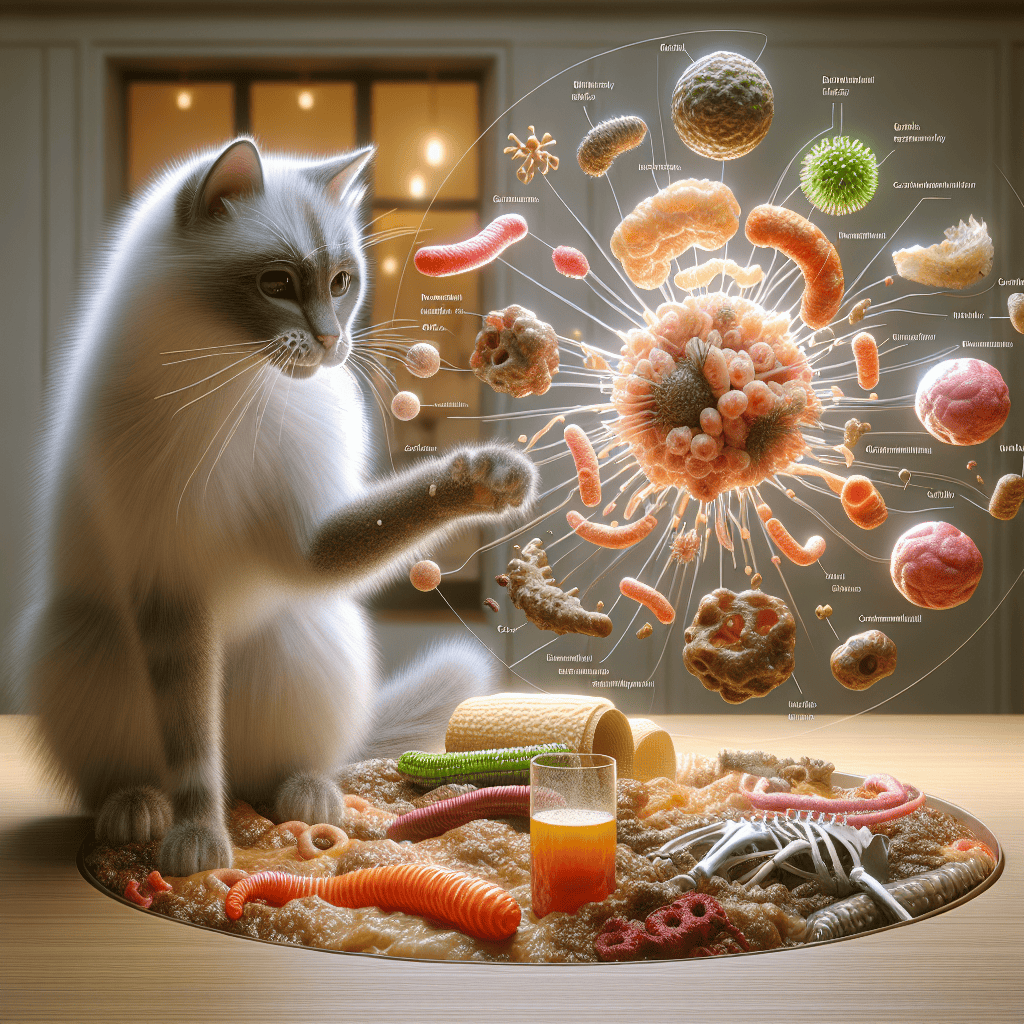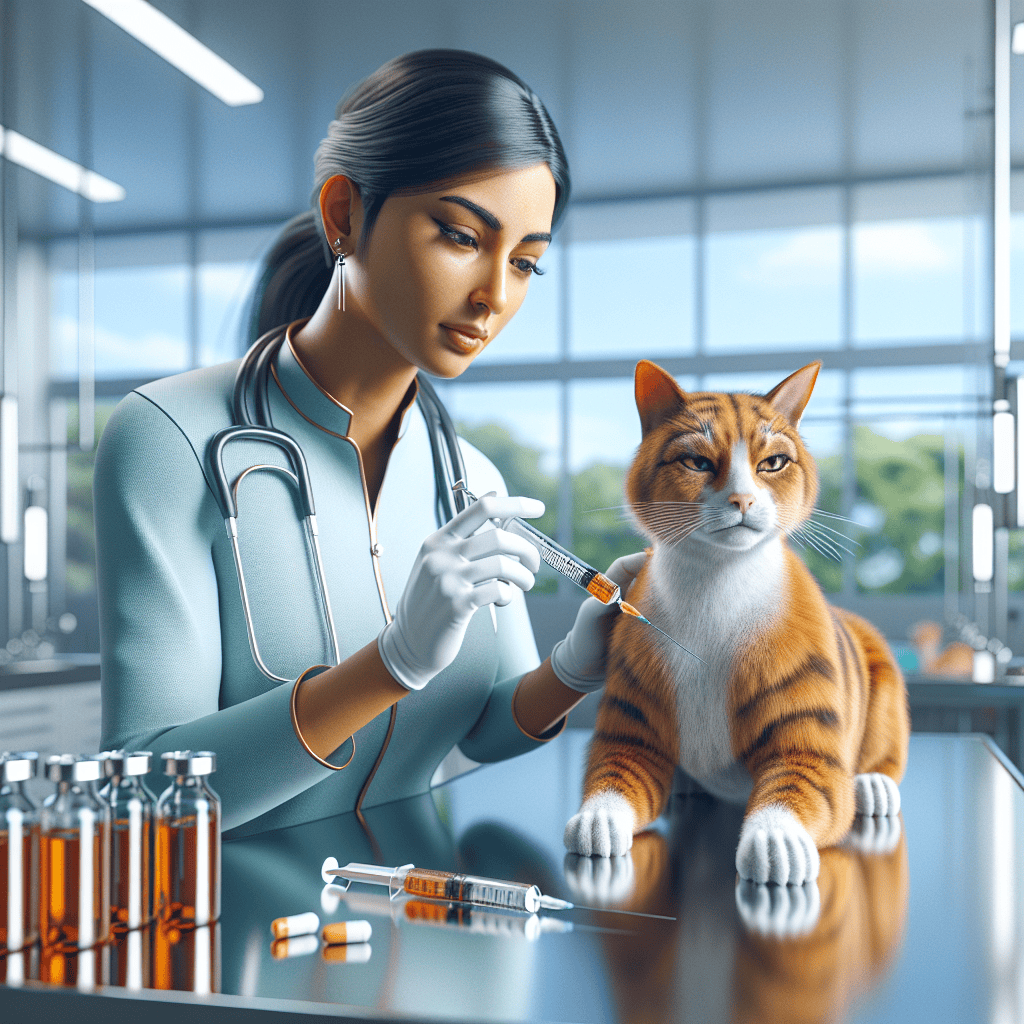Understanding Feline Inflammation
Inflammatory conditions can have a significant impact on the health and well-being of our feline friends. However, identifying these conditions can be challenging, as they often manifest with subtle symptoms that may go unnoticed. Recognizing the presence of systemic inflammation is crucial for identifying underlying conditions and providing appropriate treatment.
Impact of Inflammatory Conditions
Inflammatory conditions in cats can lead to significant consequences for their health and overall quality of life. Systemic inflammation, in particular, can present with subtle symptoms such as lethargy, mild appetite loss, and lower energy levels. These low-key symptoms make it tough to identify the underlying inflammatory condition, potentially delaying diagnosis and treatment (HORIBA).
One common inflammatory condition in cats is pancreatitis, which can range from severe acute cases with obvious outward symptoms to chronic presentations with milder symptoms. The chronic form of pancreatitis is more common and often presents with vague, grumbling symptoms. In fact, 2 in 3 cats have evidence of pancreatitis at post mortem, despite having no apparent symptoms or clinical history of the condition (HORIBA).
Another inflammatory condition that affects cats is inflammatory bowel disease (IBD). This condition results in chronic irritation and inflammation of the gastrointestinal tract. The cause of IBD in cats is not fully understood, but it is believed to arise from a complex interaction between the immune system, diet, bacterial populations in the intestines, and other environmental factors. Genetic abnormalities of the immune system may also play a role.
Challenges in Identifying Inflammation
Identifying inflammation in cats can be challenging due to the low-key symptoms that are often associated with inflammatory conditions. The subtle nature of these symptoms may cause delays in seeking veterinary care, potentially allowing the condition to progress.
In the case of pancreatitis, the chronic form of the condition can be particularly tricky to diagnose. Cats with chronic pancreatitis may exhibit mild, nonspecific symptoms that are easily overlooked. This highlights the importance of making the detection of inflammatory diseases in cats easier and more accessible.
Similarly, diagnosing inflammatory bowel disease (IBD) in cats can be challenging due to the variety of symptoms it can present with. Common signs of feline IBD include vomiting, weight loss, diarrhea (with or without blood), lethargy, and decreased appetite. The specific signs depend on which parts of the gastrointestinal tract are affected by inflammation.
To diagnose inflammatory conditions in cats, veterinarians employ various diagnostic tools and procedures, which we will explore in the next section. Early detection of inflammation is crucial for timely intervention and to improve the overall prognosis for affected cats.
Treatment Approaches
When it comes to treating inflammatory conditions in cats, there are various approaches that veterinarians consider. These treatment approaches aim to alleviate inflammation and manage the associated symptoms. Let’s explore some of the common treatment approaches for inflammatory conditions in cats.
Anti-Inflammatory Medications
Anti-inflammatory medications play a crucial role in managing inflammation in cats. Non-steroidal anti-inflammatory drugs (NSAIDs) are often preferred over corticosteroids due to the unique physiology of cats, which makes them vulnerable to toxic accumulation from common drugs. NSAIDs are prescription medications that require a blood draw to screen for renal disease before starting therapy, as most NSAIDs are cleared from the body through the kidneys.
These medications are effective in managing mild to moderate pain in cats, while severe pain may require more potent analgesics, such as those from the morphine family. It’s important to work closely with a veterinarian to determine the appropriate medication and dosage for your cat’s specific condition.
Cost Considerations
The cost of anti-inflammatory medications licensed for use in cats can vary. On average, a prescription of these medications can range from $10 to $14. It’s worth noting that there are economies of scale when purchasing larger quantities of medication, such as buying a 30 ml bottle of meloxicam, which can be more economical than buying ten 3 ml bottles. Discussing the cost implications with your veterinarian can help you plan and budget for the necessary medications.
Importance of Early Detection
Early detection of inflammatory conditions in cats is crucial for effective treatment and management. Inflammatory diseases can often manifest with subtle symptoms, making them challenging to identify. However, recognizing systemic inflammation is a critical first step towards identifying underlying conditions. Symptoms of systemic inflammation in cats may include lethargy, mild appetite loss, and lower energy levels (HORIBA).
Regular veterinary check-ups and monitoring your cat’s overall well-being are essential for early detection. If you notice any changes in your cat’s behavior or health, it’s important to consult with a veterinarian promptly. Early intervention can help prevent the progression of inflammatory conditions and improve your cat’s quality of life.
By utilizing anti-inflammatory medications, considering cost factors, and emphasizing the importance of early detection, veterinarians can effectively manage inflammatory conditions in cats. If you suspect your cat may be experiencing inflammation or related symptoms, it’s important to seek professional veterinary care to determine the best course of treatment for your feline friend.
Specific Inflammatory Conditions
Inflammatory conditions can affect various parts of a cat’s body, leading to discomfort and potential health complications. In this section, we will explore two specific inflammatory conditions that commonly occur in cats: pancreatitis and inflammatory bowel disease (IBD).
Pancreatitis in Cats
Pancreatitis is a common inflammatory disease among cats that affects the pancreas. It can range from severe acute cases with obvious outward symptoms to chronic grumbling presentations, which could have a good prognosis if caught early enough (HORIBA). The less severe, chronic condition accounts for the majority of cases, highlighting the importance of early detection.
Diagnosing pancreatitis in cats can be challenging as they often exhibit vague, chronic grumbling symptoms. In fact, 2 in 3 cats are found to have evidence of pancreatitis during post mortem examinations, even if they had no apparent symptoms or clinical history of the condition. To aid in the diagnosis, veterinarians can utilize a specific diagnostic marker called feline pancreas-specific lipase (PLi). This marker is highly specific to the pancreas and increases markedly in response to pancreatic inflammation. With the availability of in-clinic ELISA tests, PLi levels can be measured rapidly, providing a reliable indication of the presence of pancreatitis.
Inflammatory Bowel Disease (IBD)
Inflammatory bowel disease (IBD) is a syndrome in cats caused by a specific reaction to chronic irritation of the stomach or intestines. This condition occurs when specific types of inflammatory cells invade the wall of the stomach and/or intestines, leading to thickening of the gastrointestinal (GI) tract lining (VCA Canada).
Cats with IBD may exhibit a variety of clinical signs, including chronic vomiting if the stomach is involved, chronic diarrhea if the intestines are involved, or both vomiting and diarrhea. Other signs may include poor appetite, weight loss, and frequent vomiting of hairballs.
Diagnosing IBD in cats involves a combination of diagnostic tools. Ultrasound can be used to measure the thickness of the stomach and intestinal linings, providing valuable information for diagnosis. However, to obtain a conclusive diagnosis, tissue biopsies are necessary. These biopsies are sent to a veterinary pathologist for analysis to identify the predominant type of inflammatory cells present.
Treatment for IBD in cats may involve various approaches. Deworming, dietary changes, and vitamin B12 supplementation are often recommended. If dietary therapy is not successful, immunosuppressive medications like corticosteroids (prednisolone, budesonide, dexamethasone) or other medications (chlorambucil, azathioprine) may be used to suppress the inflammatory reaction. Long-term therapy is usually required, and the prognosis depends on the response to treatment. If there is a positive response to diet changes or medication, the prognosis is generally good (VCA Canada).
These specific inflammatory conditions require proper diagnosis and management to ensure the well-being of cats. By understanding the nature of these conditions and working closely with a veterinarian, cat owners can provide the necessary care and treatment to alleviate inflammation and improve their feline friends’ quality of life.
Diagnosis and Diagnostic Tools
When it comes to diagnosing inflammatory conditions in cats, identifying systemic inflammation and utilizing specific diagnostic tools are crucial steps in determining the underlying condition and developing an appropriate treatment plan.
Identifying Systemic Inflammation
Inflammatory diseases in cats can often manifest in low-key symptoms, making them tough to identify. Systemic inflammation, which affects the entire body, can present with subtle symptoms such as lethargy, mild appetite loss, and lower energy levels. Recognizing these signs is a critical first step towards identifying underlying conditions and seeking appropriate treatment.
Role of Inflammatory Markers
Inflammatory markers play a significant role in diagnosing and monitoring inflammatory conditions in cats. Three notable inflammatory markers are serum amyloid A (SAA), haptoglobin (Hp), and alpha-1 acid glycoprotein (AGP). These acute phase proteins (APPs) can be tested to assess the presence and severity of inflammation. It’s important to note that the concentrations of these markers are not correlated, so testing for each one individually provides a more comprehensive evaluation of the inflammatory response.
Diagnostic Procedures
Diagnosing inflammatory diseases in cats can be challenging, especially when the symptoms are vague and chronic. For example, pancreatitis is often detected post mortem in cats, even though they may exhibit no apparent symptoms or clinical history of the condition. To overcome these diagnostic challenges, specific diagnostic procedures are employed.
One diagnostic marker for pancreatitis in cats is feline pancreas-specific lipase (PLi). This marker is highly specific to the pancreas and shows a significant increase in blood values in response to pancreatic inflammation. The PLi test can be performed in-clinic using a simple ELISA test, providing a rapid indication of the presence of pancreatitis.
By utilizing these diagnostic tools and procedures, veterinarians can effectively identify and diagnose inflammatory conditions in cats. These diagnostic measures, along with a thorough understanding of the symptoms and medical history of the cat, help in developing an accurate treatment plan to address the underlying condition.
Management Strategies
When it comes to managing inflammatory conditions in cats, there are several strategies that can help improve their overall well-being. These strategies include dietary modifications, medication options, and long-term treatment plans.
Dietary Modifications
Dietary modifications play a crucial role in managing inflammatory conditions in cats, such as inflammatory bowel disease (IBD). In cases of IBD, specific dietary changes can help alleviate symptoms and reduce inflammation. This may involve switching to hypoallergenic diets, high-fiber and low-fat diets, or other specialized diets tailored to your cat’s specific needs. Dietary modifications aim to reduce inflammation, improve digestion, and promote overall gastrointestinal health.
Medication Options
Medication can be an important component of managing inflammatory conditions in cats. For conditions like IBD, treatment may involve a combination of medications to control inflammation and suppress the immune response. Common medications used in the treatment of IBD include corticosteroids (prednisolone, budesonide, dexamethasone) and immunosuppressive drugs (chlorambucil, azathioprine). These medications help reduce inflammation and control symptoms, allowing for improved quality of life.
It’s important to note that medication options should always be prescribed and monitored by a veterinarian. The specific medications and dosages will depend on the severity of the condition and individual cat’s response to treatment. Regular check-ups and close communication with your veterinarian are essential to ensure the best outcomes for your feline companion.
Long-Term Treatment Plans
Inflammatory conditions in cats often require long-term management to maintain symptom control and prevent relapses. Long-term treatment plans for conditions like IBD involve a combination of dietary modifications and medication. The prognosis for cats with IBD can be positive with proper management, allowing affected cats to lead healthy and comfortable lives.
Regular monitoring and follow-up visits with your veterinarian are crucial in assessing the response to treatment, making any necessary adjustments, and ensuring the ongoing health of your cat. Compliance with dietary and medication therapies is key to long-term success in managing inflammatory conditions. By working closely with your veterinarian and maintaining open lines of communication, you can develop an effective and tailored long-term treatment plan for your feline friend.
Remember, the prognosis for cats with inflammatory conditions can vary based on their individual response to treatment. Positive responses to dietary changes, medications, or corticosteroids can lead to a good long-term prognosis, while a lack of response may require further testing to identify underlying diseases. Regular monitoring and adherence to treatment protocols are essential for managing these conditions and providing the best possible quality of life for your beloved cat.






